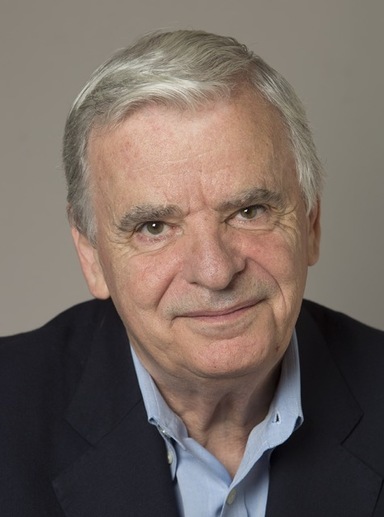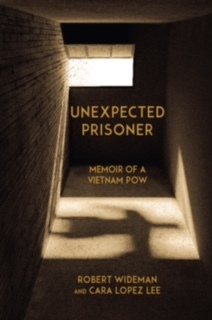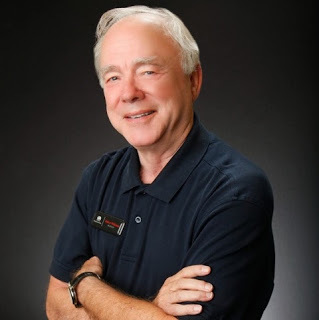Mayra Calvani's Blog - Posts Tagged "vietnam"
Spotlight: 'UNEXPECTED PRISONER: Memoir of a Vietnam Prisoner of War' by Robert Wideman
Title: UNEXPECTED PRISONER: Memoir of a Vietnam Prisoner of War
Genre: Memoir
Author: Robert Wideman
Website: www.robertwideman.com
Publisher: Graham Publishing Group
Find on Amazon
About the Book:
When Unexpected Prisoner opens, it’s May 6, 1967 and 23-year-old Lieutenant Robert Wideman is flying a Navy A-4 Skyhawk over Vietnam. At 23, Wideman had already served three and a half years in the Navy—and was only 27 combat days away from heading home to America. But on that cloudless day in May, on a routine bombing run, Wideman’s plane crashed and he fell into enemy hands. Captured and held for six years as a Prisoner of War in Vietnam, Wideman endured the kind of pain that makes people question humanity. Physical torture, however, was not the biggest challenge he was forced to withstand. In his candid memoir, Unexpected Prisoner, Wideman details the raw, unvarnished tale of how he came to understand the truth behind Jean-Paul Sartre’s words: “Hell is other people.”
A gripping, first-person account that chronicles the six-year period Wideman spent in captivity as a POW, Unexpected Prisoner plunges readers deep into the heart of one of the most protracted, deadliest conflicts in American history: the Vietnam War. Wideman, along with acclaimed memoirist Cara Lopez Lee, has crafted a story that is exquisitely engaging, richly detailed, and wholly captivating. Unexpectedly candid and vibrantly vivid, this moving memoir chronicles a POW’s struggle with enemies and comrades, Vietnamese interrogators and American commanders, lost dreams, and ultimately, himself.
With its eye-opening look at a soldier’s life before, during and after captivity, Unexpected Prisoner presents a uniquely human perspective on war and on conflicts both external and internal. An exceptional story exceptionally well-told, Unexpected Prisoner is a powerful, poignant, often provocative tale about struggle, survival, hope, and redemption.
About the Author:
Robert Wideman was born in Montreal, grew up in East Aurora, New York, and has dual U.S./Canadian citizenship. During the Vietnam War, he flew 134 missions for the U.S. Navy and spent six years as a prisoner of war. Wideman earned a master’s degree in finance from the Naval Postgraduate School. After retiring from t he Navy, he graduated from the University of Florida College of Law, practiced law in Florida and Mississippi, and became a flight instructor. Robert Wideman holds a commercial pilot’s license with an instrument rating, belongs to Veterans Plaza of Northern Colorado, and lives in Ft. Collins near his two sons and six grandchildren.
Published on December 05, 2016 07:08
•
Tags:
memoir, nonfiction, pow, vietnam
Talking Craft with AA Freda
AA Freda is an award-winning author. He’s written several novels with a third to be released in the first half of 2018. His first novel, Goodbye Rudy Kazoody, an award winner, is a coming of age work about a group of teenagers growing up in a New York City neighborhood during the early 1960's was acclaimed by the critics. His second piece and just released, A Police Action is another coming of age story about two confused young adults caught up during the free love and Vietnam era of the late 1960's. The inspiration for his books are always his lifelong experiences and people he’s met along the way.
 Freda was born in Italy but grew up in New York City and now resides in Easton, CT, a suburb of New York City that offers him a tranquil environment that allows him to keep his finger on the pulse of the city he loves so much. A graduate of Bernard Baruch College at the City University in New York, he has served as an adjunct professor at the Fashion Institute of Technology in NYC. Freda also served in Vietnam the subject matter of A Police Action. In addition to writing, in his spare time, Freda enjoys fishing, hiking, climbing and shooting pool.
Freda was born in Italy but grew up in New York City and now resides in Easton, CT, a suburb of New York City that offers him a tranquil environment that allows him to keep his finger on the pulse of the city he loves so much. A graduate of Bernard Baruch College at the City University in New York, he has served as an adjunct professor at the Fashion Institute of Technology in NYC. Freda also served in Vietnam the subject matter of A Police Action. In addition to writing, in his spare time, Freda enjoys fishing, hiking, climbing and shooting pool.
Q: Congratulations on the release of your latest book, A Police Action. To begin with, can you give us a brief summary of what the story is about and what compelled you to write it?
A: My book is about two young people starting out and trying to make sense of their lives. Complicating the process is a small war going on in Southeast Asia involving some two million soldiers. A war that our country, for political reasons, refused to even call a war. A Police Action is what our government called this illegal war.
The story details the conflict that these two young adults faced with the war and societies conventions. Sex, living alone, abortions, death and love are all brought out in this story. Can these two-people overcome these life and death situations and manage to hold on to each other? Can they find the love and fulfillment in their lives that they are seeking?
Q: What do you think makes a good Coming of Age/Historical? Could you narrow it down to the three most important elements? Is it even possible to narrow it down?
A: There are several elements important in my genre. The first and foremost are the characters. As young adults, you need to capture the complexity of the thinking in a young mind. I need to get the reader to think as a young person would. The historical part of my genre has a twofold importance. The first is to be absolutely accurate of the facts. The second is to make sure you take the reader to that time and place. Have them see clearly the era that the story is trying to convey.
 Q: How did you go about plotting your story? Or did you discover it as you worked on the book?
Q: How did you go about plotting your story? Or did you discover it as you worked on the book?
A: The story is almost semi-biographical so the plotting came easy. Making sure I did not get caught up in the history was the hard part. I wanted to be certain that the character’s personalities were brought out in the book.
Q: Tell us something interesting about your protagonist and how you developed him or her. Did you do any character interviews or sketches prior to the actual writing?
A: This took a little doing and several rewrites. Since the protagonist is a smart, talented individual, but for all intent in purpose was a loser wandering around life aimlessly. I wanted to make sure I gave the reader the right blend of that contrast.
Q: In the same light, how did you create your antagonist or villain? What steps did you take to make him or her realistic?
A: The villain in the form of a Sergeant represents a metaphor. A symbol of the deception that authority, government and military was inflicting on common folks.
Q: How did you keep your narrative exciting throughout the novel? Could you offer some practical, specific tips?
A: To keep all my stories exciting and have the reader engaged, I always narrow my chapters to mini-sub plots and stories. Similar to a television serial. Never forgetting, however that each chapter has a job to lead the reader to a main plot or story line.
Q: Setting is also quite important and in many cases, it becomes like a character itself. What tools of the trade did you use in your writing to bring the setting to life?
A: In this particular instance, it was easy for me to write about the setting. Having fought in the Vietnam war it was simply reaching back into my memory bank and putting it into writing.
Q: Did you know the theme(s) of your novel from the start or is this something you discovered after completing the first draft? Is this theme(s) recurrent in your other work?
A: No, I knew from the start the theme of A Police Action. The foolishness of the war and the effect it had on unsuspecting young people of usually poor back ground. Ordinary people who had values and ideals that may no longer exist.
Q: Where does craft end and art begin? Do you think editing can destroy the initial creative thrust of an author?
A: The craft and art separate with the editing in my opinion. The editor wants to make sure the story moves at a certain pace. The writer on the other hand would like to paint the reader a picture. Editing, while a key component in publishing, can certainly the creativity of the writer.
Q: What three things, in your opinion, make a successful novelist?
A: First would be honesty. Don’t try to fool the reader. Paint the picture correctly.
Second is to be a story teller. Make sure the story you write about is interesting and engaging.
The third is to never forget that writing is not about the author, it is about the reader. The book will be around long after the author is gone.
Q: A famous writer once wrote that being an author is like having to do homework for the rest of your life. What do you think about that?
A: There is truth to that. But it’s nice homework. Not toiling gruesome assignments or subject matters.
Q: Are there any resources, books, workshops or sites about craft that you’ve found helpful during your writing career?
A: No workshops but I can cite at least three teachers that encouraged me to write. These teachers provided me with positive attitude to continue to write. An attitude that I still maintain today.
Q: Is there anything else you’d like to share with my readers about the craft of writing?
A: First, whatever you do, keep writing. Don’t ever get discouraged. If your work doesn’t come out right, go back and fix the errors but don’t give up. Be honest with yourself and your writing. We all can improve our craft. Athletes practice non-stop to get better. Writers should do the same.
 Freda was born in Italy but grew up in New York City and now resides in Easton, CT, a suburb of New York City that offers him a tranquil environment that allows him to keep his finger on the pulse of the city he loves so much. A graduate of Bernard Baruch College at the City University in New York, he has served as an adjunct professor at the Fashion Institute of Technology in NYC. Freda also served in Vietnam the subject matter of A Police Action. In addition to writing, in his spare time, Freda enjoys fishing, hiking, climbing and shooting pool.
Freda was born in Italy but grew up in New York City and now resides in Easton, CT, a suburb of New York City that offers him a tranquil environment that allows him to keep his finger on the pulse of the city he loves so much. A graduate of Bernard Baruch College at the City University in New York, he has served as an adjunct professor at the Fashion Institute of Technology in NYC. Freda also served in Vietnam the subject matter of A Police Action. In addition to writing, in his spare time, Freda enjoys fishing, hiking, climbing and shooting pool.Q: Congratulations on the release of your latest book, A Police Action. To begin with, can you give us a brief summary of what the story is about and what compelled you to write it?
A: My book is about two young people starting out and trying to make sense of their lives. Complicating the process is a small war going on in Southeast Asia involving some two million soldiers. A war that our country, for political reasons, refused to even call a war. A Police Action is what our government called this illegal war.
The story details the conflict that these two young adults faced with the war and societies conventions. Sex, living alone, abortions, death and love are all brought out in this story. Can these two-people overcome these life and death situations and manage to hold on to each other? Can they find the love and fulfillment in their lives that they are seeking?
Q: What do you think makes a good Coming of Age/Historical? Could you narrow it down to the three most important elements? Is it even possible to narrow it down?
A: There are several elements important in my genre. The first and foremost are the characters. As young adults, you need to capture the complexity of the thinking in a young mind. I need to get the reader to think as a young person would. The historical part of my genre has a twofold importance. The first is to be absolutely accurate of the facts. The second is to make sure you take the reader to that time and place. Have them see clearly the era that the story is trying to convey.
 Q: How did you go about plotting your story? Or did you discover it as you worked on the book?
Q: How did you go about plotting your story? Or did you discover it as you worked on the book?A: The story is almost semi-biographical so the plotting came easy. Making sure I did not get caught up in the history was the hard part. I wanted to be certain that the character’s personalities were brought out in the book.
Q: Tell us something interesting about your protagonist and how you developed him or her. Did you do any character interviews or sketches prior to the actual writing?
A: This took a little doing and several rewrites. Since the protagonist is a smart, talented individual, but for all intent in purpose was a loser wandering around life aimlessly. I wanted to make sure I gave the reader the right blend of that contrast.
Q: In the same light, how did you create your antagonist or villain? What steps did you take to make him or her realistic?
A: The villain in the form of a Sergeant represents a metaphor. A symbol of the deception that authority, government and military was inflicting on common folks.
Q: How did you keep your narrative exciting throughout the novel? Could you offer some practical, specific tips?
A: To keep all my stories exciting and have the reader engaged, I always narrow my chapters to mini-sub plots and stories. Similar to a television serial. Never forgetting, however that each chapter has a job to lead the reader to a main plot or story line.
Q: Setting is also quite important and in many cases, it becomes like a character itself. What tools of the trade did you use in your writing to bring the setting to life?
A: In this particular instance, it was easy for me to write about the setting. Having fought in the Vietnam war it was simply reaching back into my memory bank and putting it into writing.
Q: Did you know the theme(s) of your novel from the start or is this something you discovered after completing the first draft? Is this theme(s) recurrent in your other work?
A: No, I knew from the start the theme of A Police Action. The foolishness of the war and the effect it had on unsuspecting young people of usually poor back ground. Ordinary people who had values and ideals that may no longer exist.
Q: Where does craft end and art begin? Do you think editing can destroy the initial creative thrust of an author?
A: The craft and art separate with the editing in my opinion. The editor wants to make sure the story moves at a certain pace. The writer on the other hand would like to paint the reader a picture. Editing, while a key component in publishing, can certainly the creativity of the writer.
Q: What three things, in your opinion, make a successful novelist?
A: First would be honesty. Don’t try to fool the reader. Paint the picture correctly.
Second is to be a story teller. Make sure the story you write about is interesting and engaging.
The third is to never forget that writing is not about the author, it is about the reader. The book will be around long after the author is gone.
Q: A famous writer once wrote that being an author is like having to do homework for the rest of your life. What do you think about that?
A: There is truth to that. But it’s nice homework. Not toiling gruesome assignments or subject matters.
Q: Are there any resources, books, workshops or sites about craft that you’ve found helpful during your writing career?
A: No workshops but I can cite at least three teachers that encouraged me to write. These teachers provided me with positive attitude to continue to write. An attitude that I still maintain today.
Q: Is there anything else you’d like to share with my readers about the craft of writing?
A: First, whatever you do, keep writing. Don’t ever get discouraged. If your work doesn’t come out right, go back and fix the errors but don’t give up. Be honest with yourself and your writing. We all can improve our craft. Athletes practice non-stop to get better. Writers should do the same.
Published on January 12, 2018 11:10
•
Tags:
coming-of-age, military, police, vietnam





